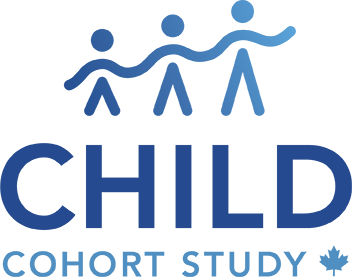|
Project Information |
|||||||||
|
Project Title: |
Sleep, Learning, hEalth, and Environment Project – Edmonton (SLEEP-E) at 2 years of age |
||||||||
|
Principal Investigator(s): |
Mandhane, Piush. |
||||||||
|
Co-Investigators: |
Pei, Jacqueline ; Rasmussen, Carmen R ; Witmans, Manisha Budhdeo ; Zwaigenbaum, Lonnie |
||||||||
|
Research Institution: |
University of Alberta |
||||||||
|
Department: |
Pediatrics |
||||||||
|
Agency: |
Canadian Institutes of Health Research |
||||||||
|
Program: |
Sleep and Circadian Rhythms: Operating Grant |
||||||||
|
Period: |
from: 2010-04-01 to: 2012-03-31 |
||||||||
|
Funding information: |
|
||||||||
|
Keywords: |
ASPECTS PSYCHOSOCIAUX/COMPORTEMENTS, LONGITUDINAL BIRTH COHORT, POLYSOMNOGRAPHY, POPULATION HEALTH, POPULATION REPRESENTATIVE STUDY, PRESCHOOL BEHAVIOUR AND EXECUTIVE FUNCTION, PRESCHOOL NEURODEVELOPMENT, PSYCHOSOCIAL/HEALTH BEHAVIOURAL RES., RESPIRATION, SANTE DES POPULATIONS, SLEEP DISORDERED BREATHING, SLEEP DISORDERS, TROUBLES DE SOMMEIL |
||||||||
|
Abstract: |
Childhood sleep disordered breathing (SDB), from habitual snoring to obstructive sleep apnea syndrome, is associated with academic difficulties and ADHD-like symptoms long after the SDB has resolved. SDB in pre-school children, a period of significant brain development, is under-studies and consequently, the long-term impact on growth and development may be under-appreciated. We hypothesize that children with SDB in the first two years of life are more likely to present with learning difficulties at 2 years of age. We are currently recruiting 1000 pregnant women in Edmonton for a new longitudinal birth cohort study. Cognitive development will be assessed by the Bayley Scale of Infant Development (BSID-III) at age 1 and 2 years. Childhood behaviour and executive function will be assessed by the Child Behaviour Checklist (CBCL) and the Behaviour Rating Inventory of Executive Function-Preschool Version (BRIEF-P) at age 2 years. To identify children with SDB, we will administer the Paediatric Sleep Questionnaire to all 1000 children every 3 months, complete a laboratory sleep study on all children at age 1, and a sleep study at age 2 years in children previously identified as having SDB or developmental delays. This proposal describes a unique opportunity to address questions of critical importance to human development in the context of a new longitudinal birth cohort study. |
||||||||

